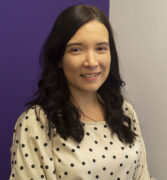Farleys recently acted for a young man who faced a Crown Court trial for a single count of rape. He maintained from the outset that he had been asleep at the time of the alleged offence and he was able to provide details of previous partners with whom episodes of sexsomnia had occurred. We took witness statements from these people and then instructed an expert to undertake a consultation with our client.
The expert’s conclusion was that it was possible for the sexual behaviour displayed by our client to be the result of a sleep disorder or a medical disorder. Our client then underwent three nights of sleep tests in the expert’s laboratory. For the first two nights, he was filmed overnight whilst wired up to electrodes which recorded brain activity as he slept. On the third night he was deprived of sleep overnight and then filmed and his brain activity recorded as he slept the following day. The sleep tests supported the expert’s original conclusion that it was certainly possible that our client was asleep at the time of the alleged offence.
Both of the expert’s reports were served on the Crown Prosecution Service and we put pressure on them to reconsider their decision to prosecute our client. After an agonising wait they made what was the clearly right decision, that is, to offer no evidence against our client and a not guilty verdict was entered.
Sexsomnia was officially recognised as a sleep disorder in the International Classification of Sleep Disorders in 2005, although research has been on-going for the last decade or so. It is thought that it is a variant of somnambulism, or sleepwalking.
Sexsomnia sufferers will usually have absolutely no recollection of the sexual behaviour that they have engaged in whilst asleep and will either be informed of the act later by their partner, or woken part way through.
The behaviour can be sexual behaviour of any description from sexual talking right through to intercourse.
Much more prevalent in males than females, sexsomnia is commonly first reported in those in their 20s and 30s. Often sufferers will have a family and/or personal history of sleep disorders. Triggers may exist such as the mere presence of a bed partner, sleep deprivation or stress, and alcohol consumption complicates matters, with experts unable to agree on its role.
It is important to instruct an expert where a defence of sexsomnia has been raised by a defendant. Ultimately though, only the defendant and the complainant know the truth as to whether the defendant was, in fact, asleep at the time of the alleged offence.
If you are facing charges of rape, or indeed any serious crime, it is essential that you speak to an experienced criminal defence solicitor at the earliest opportunity. Our crime line operates 24 hours a day, 7 days a week – please call 01254 606050 for immediate access to legal advice from a criminal lawyer.



